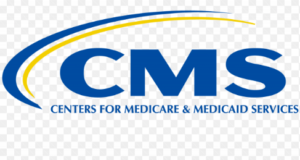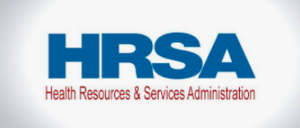- Rural America Faces Growing Shortage of Eye Surgeons
- NRHA Continues Partnership to Advance Rural Oral Health
- Comments Requested on Mobile Crisis Team Services: An Implementation Toolkit Draft
- Q&A: What Are the Challenges and Opportunities of Small-Town Philanthropy?
- HRSA Administrator Carole Johnson, Joined by Co-Chair of the Congressional Black Maternal Health Caucus Congresswoman Lauren Underwood, Announces New Funding, Policy Action, and Report to Mark Landmark Year of HRSA's Enhancing Maternal Health Initiative
- Biden-Harris Administration Announces $60 Million Investment for Adding Early Morning, Night, and Weekend Hours at Community Health Centers
- Volunteer Opportunity for HUD's Office of Housing Counseling Tribe and TDHE Certification Exam
- Who Needs Dry January More: Rural or Urban Drinkers?
- Rural Families Have 'Critical' Need for More Hospice, Respite Care
- States Help Child Care Centers Expand in Bid To Create More Slots, Lower Prices
- Rural Telehealth Sees More Policy Wins, but Only Short-Term
- Healing a Dark Past: The Long Road To Reopening Hospitals in the Rural South
- Study: Obstetrics Units in Rural Communities Declining
- Q&A: Angela Gonzales (Hopi), on New Indigenous Health Research Dashboard
- Not All Expectant Moms Can Reach a Doctor's Office. This Kentucky Clinic Travels to Them.
CMS Seeks Feedback on Two Agency Information Collection Activities
– Comment by July 11. The Centers for Medicare & Medicaid Services (CMS) seeks comments from the public on the following information collections: 1) Identification of Extension Units of Medicare Approved Outpatient Physical Therapy/Outpatient Speech Pathology (OPT/OSP) Providers and Supporting Regulations and 2) Conditions for Certification for Rural Health Clinics and Conditions for Coverage for Federally Qualified Health Centers in 42 CFR 491.
CMS Releases Final Rule on Prescription Drug Benefit and ONC Health Information Technology Regulations
 The Centers for Medicare & Medicaid Services (CMS) and the Office of the National Coordinator for Health Information Technology (ONC) addressed the remaining proposed policies from the November 15, 2025 Contract Year 2025 Policy and Technical Changes to the Medicare Program, Medicare Prescription Drug Benefit Program proposed rule. In this recent final rule, CMS revised the Medicare Prescription Drug Benefit (Part D) and regulations to implement changes related to required standards for electronic prescribing and adoption of health information technology (IT) standards for Department of Health and Human Services (HHS) use. CMS will require Part D sponsors, prescribers, and dispensers of covered Part D drugs for eligible individuals to comply with standards CMS has either adopted directly or is requiring by cross-referencing ONC standards for electronically transmitting prescriptions and prescription-related information. These regulations are effective June 17, 2024.
The Centers for Medicare & Medicaid Services (CMS) and the Office of the National Coordinator for Health Information Technology (ONC) addressed the remaining proposed policies from the November 15, 2025 Contract Year 2025 Policy and Technical Changes to the Medicare Program, Medicare Prescription Drug Benefit Program proposed rule. In this recent final rule, CMS revised the Medicare Prescription Drug Benefit (Part D) and regulations to implement changes related to required standards for electronic prescribing and adoption of health information technology (IT) standards for Department of Health and Human Services (HHS) use. CMS will require Part D sponsors, prescribers, and dispensers of covered Part D drugs for eligible individuals to comply with standards CMS has either adopted directly or is requiring by cross-referencing ONC standards for electronically transmitting prescriptions and prescription-related information. These regulations are effective June 17, 2024.
New Information on Federal Financing of Medicaid IT for Behavioral Health
 The Centers for Medicare & Medicaid Services (CMS) released an informational bulletin, in collaboration with the Department of Health and Human Services Office of the National Coordinator for Health Information Technology. The guidance describes opportunities for state Medicaid agencies to receive enhanced federal matching rates for certain health Information Technology aimed at increasing access to behavioral health treatment and improving coordination of care for co-occurring physical health conditions, such as telehealth and electronic connections to Health Information Exchanges. It also reminds state Medicaid agencies how to apply for enhanced Medicaid matching rates for these types of expenditures. Medicaid is an important source of insurance in rural areas, and leveraging federal dollars can help rural communities expand their capacity to deliver behavioral health services.
The Centers for Medicare & Medicaid Services (CMS) released an informational bulletin, in collaboration with the Department of Health and Human Services Office of the National Coordinator for Health Information Technology. The guidance describes opportunities for state Medicaid agencies to receive enhanced federal matching rates for certain health Information Technology aimed at increasing access to behavioral health treatment and improving coordination of care for co-occurring physical health conditions, such as telehealth and electronic connections to Health Information Exchanges. It also reminds state Medicaid agencies how to apply for enhanced Medicaid matching rates for these types of expenditures. Medicaid is an important source of insurance in rural areas, and leveraging federal dollars can help rural communities expand their capacity to deliver behavioral health services.
Understanding the Rise of Ransomware Attacks on Rural Hospitals
Among the key findings in this brief from the University of Minnesota Rural Health Research Center:
- Rural hospitals experienced an increasing number of ransomware attacks from 2016 to 2021.
- From 2016 to 2021, 43 rural hospitals across 22 states experienced a ransomware attack.
- Ransomware attacks afflicted all types of rural hospitals, including Critical Access Hospitals (N=9), Sole Community Hospitals (N=13), Rural Referral Centers (N=3), and hospitals paid under Medicare’s Inpatient Prospective Payment System (N=18).
- Eighty-four percent of ransomware attacks on rural hospitals resulted in operational disruptions. Common disruptions included electronic system downtime (81%), delays or cancellations in scheduled care (42%), and ambulance diversion (33%). Operational disruptions were similar in rural and urban hospital settings.
New Toolkit from RHIhub: Chronic Disease Management Released
This toolkit compiles evidence-based and promising models and resources to support chronic disease management programs in rural communities across the United States. It covers several common chronic conditions including diabetes, chronic obstructive pulmonary disease (COPD), heart disease, arthritis, chronic kidney disease, cancer, obesity, and chronic pain. Developed in collaboration with the NORC Walsh Center for Rural Health Analysis, it’s part of a growing collection of resources available at the Rural Health Information Hub (RHIhub).
HRSA Nurse, Education, Practice, Quality and Retention – Workforce Expansion Program
– Apply by July 26. HRSA’s Bureau of Health Workforce aims to increase the supply of nurses in rural and underserved areas, specifically in acute and long-term care settings. Eligible applicants are public and private institutions of higher education and federally recognized Native American tribal governments.
HRSA Will Select One Technical Assistance Provider for Rural Hospital Stabilization Pilot Program
 – Apply by July 26. The Federal Office of Rural Health Policy expects to make one award, up to $4,000,000, to an entity that will provide in-depth technical assistance to rural hospitals. The assistance is meant to keep health care services available at the local level and help participating hospitals enhance or expand their service lines. The technical assistance provider that receives this funding will work through a cooperative agreement with FORHP to select participating hospitals. Applications for this single award will be accepted through July 26. Interested applicants may attend a live, 90-minute webinar on Friday, June 28 at 2:00 pm Eastern. Submit questions ahead of time at RuralHospitals@hrsa.gov.
– Apply by July 26. The Federal Office of Rural Health Policy expects to make one award, up to $4,000,000, to an entity that will provide in-depth technical assistance to rural hospitals. The assistance is meant to keep health care services available at the local level and help participating hospitals enhance or expand their service lines. The technical assistance provider that receives this funding will work through a cooperative agreement with FORHP to select participating hospitals. Applications for this single award will be accepted through July 26. Interested applicants may attend a live, 90-minute webinar on Friday, June 28 at 2:00 pm Eastern. Submit questions ahead of time at RuralHospitals@hrsa.gov.
Testing for Influenza in Pennsylvanians with Severe Respiratory Illness
 The PA Department of Health released PA-HAN-753 on June 6 asking that clinicians continue to test for influenza in patients with respiratory illness throughout the summer, particularly in individuals who are severely ill, or individuals with influenza-like illness with or without a fever or conjunctivitis, particularly in persons with relevant exposures (e.g., dairy cows, raw milk, wild birds, poultry, agricultural fair attendance). Forward to the state public health laboratory for further testing the following: any specimens that are positive for influenza A but are subtype negative; or influenza A positive specimens that are subtype influenza A (H1) and not influenza A(H1)pdm09 on tests designed to provide an influenza subtyping result and confirmed upon retest or specimens from severely ill patients for which subtyping is not done.,. Please call the Pennsylvania Department of Health (DOH) at 1-877- PA-HEALTH (1-877-724-3258) or your local health department.
The PA Department of Health released PA-HAN-753 on June 6 asking that clinicians continue to test for influenza in patients with respiratory illness throughout the summer, particularly in individuals who are severely ill, or individuals with influenza-like illness with or without a fever or conjunctivitis, particularly in persons with relevant exposures (e.g., dairy cows, raw milk, wild birds, poultry, agricultural fair attendance). Forward to the state public health laboratory for further testing the following: any specimens that are positive for influenza A but are subtype negative; or influenza A positive specimens that are subtype influenza A (H1) and not influenza A(H1)pdm09 on tests designed to provide an influenza subtyping result and confirmed upon retest or specimens from severely ill patients for which subtyping is not done.,. Please call the Pennsylvania Department of Health (DOH) at 1-877- PA-HEALTH (1-877-724-3258) or your local health department.
Pennsylvania Hospital Benefits from Expansion of Rural Residencies
![]() Corry Memorial Hospital Association in northwest Pennsylvania was one of 15 recipients to share $11 million in Health Resources and Services Administration (HRSA) funding to establish new residency programs in rural communities. HHS Secretary Xavier Becerras said, “Training more doctors in our country’s rural areas is a proven strategy to recruit and retain doctors to serve rural communities. By funding new residency programs focused on OB-GYN training, we can help eliminate maternal care deserts, an important step in making pregnancy and childbirth safer.” Corry Memorial Hospital, which is associated with Lake Erie College of Osteopathic Medicine (LECOM), will establish a new psychiatry residency program.
Corry Memorial Hospital Association in northwest Pennsylvania was one of 15 recipients to share $11 million in Health Resources and Services Administration (HRSA) funding to establish new residency programs in rural communities. HHS Secretary Xavier Becerras said, “Training more doctors in our country’s rural areas is a proven strategy to recruit and retain doctors to serve rural communities. By funding new residency programs focused on OB-GYN training, we can help eliminate maternal care deserts, an important step in making pregnancy and childbirth safer.” Corry Memorial Hospital, which is associated with Lake Erie College of Osteopathic Medicine (LECOM), will establish a new psychiatry residency program.
New Nurse Workforce Funding Opportunity Announced
 The Health Resources and Services Administration (HRSA) has just announced a new funding opportunity to increase the nurse workforce in rural and underserved areas. Federally Qualified Health Centers are eligible to apply for The Nurse Education, Practice, Quality and Retention (NEPQR) – Workforce Expansion Program (WEP) now through July 26, 2024. HRSA will award approximately $4.7 million to up to five grantees over a period of four years for additional training of associate and baccalaureate degree nursing students. A technical assistance webinar regarding this funding opportunity will be held June 25 at 1:00 pm.
The Health Resources and Services Administration (HRSA) has just announced a new funding opportunity to increase the nurse workforce in rural and underserved areas. Federally Qualified Health Centers are eligible to apply for The Nurse Education, Practice, Quality and Retention (NEPQR) – Workforce Expansion Program (WEP) now through July 26, 2024. HRSA will award approximately $4.7 million to up to five grantees over a period of four years for additional training of associate and baccalaureate degree nursing students. A technical assistance webinar regarding this funding opportunity will be held June 25 at 1:00 pm.
